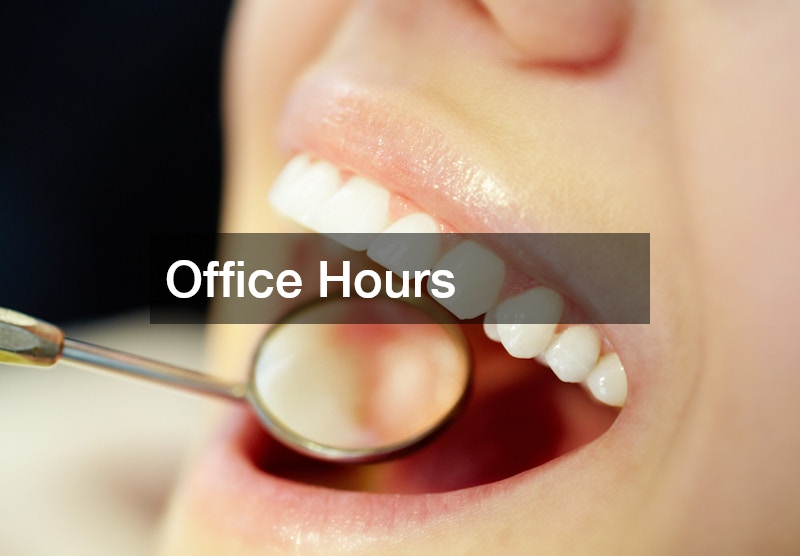

Choosing a dentist is a decision that significantly impacts your oral health, making it crucial to find the right professional for your dental needs. Whether you’re seeking routine cleaning, cosmetic enhancements, or specialized care like pediatric dentistry, the right dentist can make all the difference. With the vast number of dental services available today, it can be overwhelming to make this choice. This comprehensive guide aims to assist you in evaluating essential factors when choosing a dentist, ensuring both your comfort and the quality of care received. We’ll explore various parameters including credentials, office location, reputation, office hours, specializations, technology and equipment, atmosphere, communication, cost, and availability for emergencies. By the end of this article, you will have the information needed to make an informed decision for you and your family.
As oral health is a fundamental aspect of overall well-being, understanding what to look for in a dentist is imperative. You’ll learn about the importance of reviewing a dentist’s qualifications and experience. We’ll cover the significance of their office’s location and how it can impact regular visits. Furthermore, we will delve into the reputation of dental practices, particularly in specialized areas like pediatric dentistry. Knowing about office hours, emergency availability, and the latest technological advancements in dental treatments like porcelain veneers or dental bridges can also play a pivotal role in your decision-making process. This guide will equip you with the tools to identify a dentist who will meet both your immediate dental treatments and long-term oral health goals.
Navigating the plethora of choices in dental services doesn’t have to be daunting. By focusing on specific criteria that align with your health needs and lifestyle, you can narrow down the options to find a dentist who best fits. Whether you’re seeking a cosmetic dentist for aesthetic enhancements or a general dentistry specialist for routine care, the insights in this article will prove invaluable. So, let’s dive in and discover how to choose a dentist that’s perfect for you.
Credentials

One of the first factors to consider when choosing a dentist is their credentials. This includes their educational background, training, and any specialties they may have. Dentists who have pursued additional qualifications in areas such as cosmetic dentistry or pediatric dentistry often bring a depth of expertise that can be beneficial for specific treatment needs.
Beyond their educational achievements, it’s important to understand how long the dentist has been practicing. Experience can translate into skill and familiarity with various dental procedures. When assessing dental services, inquire about the dentist’s experience with treatments that you foresee needing, such as dental bridges or porcelain veneers.
In addition to academic and practical credentials, professional affiliations are equally telling. Membership in organizations like the American Dental Association (ADA) or similar professional bodies often indicates a commitment to staying current with innovations and maintaining ethical standards within the field. A dentist’s professional credentials offer a baseline of assurance in terms of competence and reliability.
Office Location
The location of a dentists office is an important practical consideration. Ideally, the office should be conveniently located relative to either your home or workplace, making it easy to schedule and attend appointments. By minimizing travel time and effort, you’re more likely to adhere to regular dentist appointments, which are crucial for maintaining oral health.
Accessibility is also a key factor, especially for families or individuals with limited mobility. Confirm whether the office has adequate parking or access to public transportation. In addition to location, the surrounding area should be considered; a dental office located in a safe, pleasant neighborhood contributes to a more comfortable visit.
Furthermore, location can influence the range of services provided. Urban dental practices may offer a wider variety of dental treatments and have access to state-of-the-art technology compared to their rural counterparts. They may also be better equipped to handle specialized procedures, such as orthodontics or cosmetic dentistry, which can be crucial for comprehensive care. Rural practices, while often more personalized, may offer a more limited range of services. Considering these aspects of the dentist’s office can help ensure a smoother, more convenient healthcare experience tailored to your needs.
Reputation
The reputation of a dental practice speaks volumes about the quality of care and service you can expect. When choosing a dentist, start by seeking recommendations from friends, family, or colleagues who can provide firsthand experiences. Testimonials and reviews online can also offer insights into patient satisfaction and the dentist’s skillset.
For parents, considering a dentist’s reputation in pediatric dentistry is especially important. Children require a unique approach to dental care, so finding a dentist who is known for effectively treating young patients can lead to a more positive experience for your child. Look for a practice that is known for creating a welcoming and calming atmosphere for children.
Additionally, a reputable dental practice is often involved in the community and participates in ongoing education. Such commitment indicates a dedication to providing the best possible dental services. Select a dentist with a strong reputation in both general dentistry and specialized fields, such as cosmetic or pediatric dentistry, to ensure comprehensive care for you and your family.
Office Hours

Office hours are another vital consideration when choosing a dentist. A practice that offers flexible hours, including evening or weekend appointments, can accommodate your schedule more easily, allowing you to prioritize your dental health alongside work and other commitments. This flexibility is particularly beneficial for families or individuals with busy routines.
When evaluating dentists, inquire about their protocol for emergencies outside of regular office hours. Knowing that you have access to emergency dental care when needed provides peace of mind and ensures that urgent issues are addressed promptly. This information is crucial, especially if you require procedures like dentures or dental bridges, where timely intervention may be necessary.
Aligning office hours with your availability helps build a reliable dentist-patient relationship. Dentists who are available when needed are more likely to engage with you long-term, providing consistent care and monitoring of your dental health over the years.
Specializations
Different dental practices may offer a variety of specializations, making it important to choose a dentist who meets your specific needs. If you’re interested in cosmetic dentistry, look for a dentist specialized in smile enhancements, including porcelain veneers or dental bridges. Conversely, if you have children, a practice that excels in pediatric dentistry could be a priority.
For individuals with particular health conditions that impact dental care, specialists with relevant experience are crucial. This might include expertise in treating patients with disabilities or chronic illnesses that require customized dental treatments. A dentist’s specialization significantly impacts the quality and appropriateness of care you receive.
A practice offering multiple specializations under one roof can provide comprehensive care, beneficial for families needing diverse dental services. Consider what specializations align with your needs, and prioritize them when choosing a dentist to ensure that all potential aspects of care are covered.
Technology and Equipment
As dentistry evolves, so do the technological advancements within the field. When choosing a dentist, consider whether the practice utilizes modern equipment and up-to-date methods for dental treatments. State-of-the-art technology can make procedures more precise, less invasive, and more comfortable for patients.
Advanced technology, like digital X-rays and intraoral cameras, allows for more accurate diagnostics and better treatment planning. Investing in such technology often reflects the dentist’s commitment to high-quality service. Whether you’re interested in cosmetic enhancements or need general dentistry work, a technologically equipped practice can enhance your dental experience.
Another consideration is the availability of newer treatment options like dental bridges made from modern materials or advanced methods for placing porcelain veneers. A dentist who keeps pace with industry advancements provides an assurance of high standards and the latest care breakthroughs.
Atmosphere

The atmosphere of a dental office can greatly influence your experience there. Choosing a dentist whose office environment is welcoming and comfortable can ease any anxiety and make your visits more pleasant. From the waiting area to the treatment rooms, a thoughtfully designed office contributes to a positive patient experience.
Sensitivity to patient needs, including soft lighting and soothing decor, can create a calming ambiance. It’s advantageous to observe how staff interacts with patients, as courteous and responsive interactions often reflect the general demeanor of care you will receive.
An office atmosphere conducive to comfort is important for patients of all ages, fostering a supportive setting for general dentistry services. Consider selecting a dentist who places emphasis on creating an inviting atmosphere, which can help in maintaining regular dental checkups and overall oral health.
Communication
Effective communication between the dentist and patient is crucial for a successful healthcare partnership. When choosing a dentist, prioritize those who take time to listen to your concerns, explain procedures thoroughly, and provide clear guidance on treatment options. Open dialogue fosters trust and ensures you are informed about your dental health at every stage.
For treatments like porcelain veneers or complex dental work, clear communication ensures you understand the process, expectations, and post-care instructions. Moreover, a dentist who communicates well is likely to engage more effectively in treatment planning and decision-making, aligning with your health goals.
In addition to direct interaction, consider a practice’s overall communication policies, such as how they handle appointment reminders, follow-up calls, and emergency contacts. Efficient communication is a hallmark of a well-organized dental service, enhancing patient satisfaction and loyalty.
Cost and Payment

The cost of dental care and the available payment options are significant factors when choosing a dentist. Dental procedures can vary greatly in price, particularly with treatments like implants or cosmetic enhancements such as porcelain veneers. Understanding the cost structure in advance prevents unexpected financial strain.
When exploring dental practices, inquire about the payment plans they offer. Some offices may provide financing options or accept a variety of insurance plans to accommodate diverse financial situations. Flexible payment terms can make treatments more accessible and less stressful to manage.
Selecting a dentist who is transparent about fees and open to discussing payment agreements creates a more straightforward financial relationship. Transparency in cost and payment policies ensures a seamless healthcare experience, fostering ongoing collaboration and trust between patient and provider.
Availability for Emergencies
Emergency dental care is essential for addressing urgent issues that require immediate attention, such as pain from a broken tooth or lost dentures. When choosing a dentist, consider their availability for emergency treatments, and inquire about protocols for handling situations outside of standard office hours.
An efficiently managed practice should have an established plan for emergencies, whether through after-hours calls or referrals to trusted specialists. Knowing your dentist can accommodate emergency situations provides peace of mind and ensures that dental health is prioritized even under unforeseen circumstances.
Balancing regular visits with emergency preparedness is vital for comprehensive dental care. Choose a dentist who assures both general dentistry services and readiness to tackle immediate issues as they arise, supporting your oral health without interruptions.
Conclusion
In conclusion, choosing a dentist is a multifaceted process that demands careful consideration of numerous factors. By focusing on credentials, office location, reputation, office hours, specializations, technology and equipment, atmosphere, communication, cost, and emergency availability, you can find a dental provider that aligns with your needs. This decision impacts your immediate dental care and long-term oral health, making due diligence essential when evaluating potential dental services.
Selecting a dentist involves more than just convenience and cost; it’s about forming a partnership focused on maintaining and enhancing your well-being. As you navigate the options available, remember to prioritize open communication, assess technological capabilities, and consider recommendations for specialized areas like pediatric or cosmetic dentistry. The ideal choice will provide you with quality service, tailored care, and ongoing support for maintaining optimal dental health.
Ultimately, a well-chosen dentist will contribute significantly to both your oral health and overall quality of life. Approach this decision with the understanding that a good dentist does not merely treat teeth but also fosters a relationship grounded in trust, accessibility, and patient-focused care. By being thorough and informed in your selection process, you ensure not only immediate satisfaction but also long-term oral health resilience.







